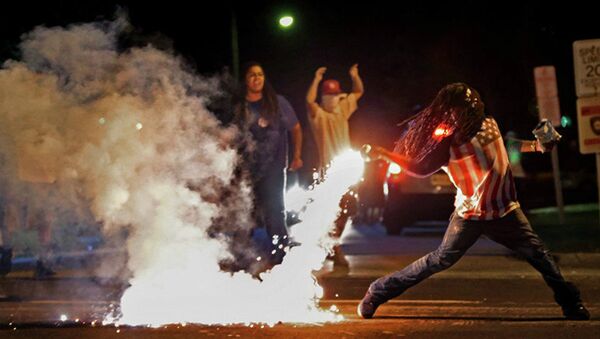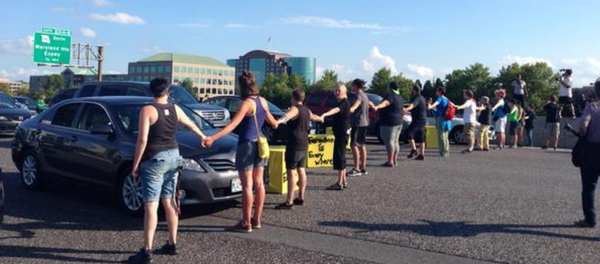WASHINGTON (Sputnik) — The outrage in Ferguson, Missouri over the past year has been a wake-up call that has brought people together to make a positive change to their community, Missouri Commission on Human Rights Executive Director Dr. Alisa Warren told Sputnik.
“I think what happened… in this community after Mike Brown was killed a year ago this weekend was that it really woke up a sleeping giant that has been discrimination… in our state and our country,” Warren said on Monday.
The St. Louis suburb of Ferguson has been rocked by days of mainly peaceful but occasionally violent protests on the first anniversary of the shooting of 18-year-old unarmed African-American Michael Brown by police on August 9, 2014.
“People have decided that this is a turning point and they want to be able to come together collectively to make a change, a positive change, to have people treated fairly, to have people know their rights, and it's been a positive change,” Warren said. “It has really awakened the community in a positive way.”
Warren explained human rights groups had enjoyed a positive experience from working with the people of Ferguson, because, she noted, they wanted to make a difference and improve conditions in their community.
“One of the things that has been a positive change that I'm excited about was to see more diversity on the city council through the elections… to elect a first African American woman to their City Council, Ella Jones,” she said. “That is historic, that is a change.”
Dr. Alisa Warren also claims that the unrest in Ferguson was fuelled by unemployment crisis and lack of jobs across the United States.
“One of the things we try to address here today is jobs,” Warren said on Monday. “There is not an appropriate amount of good opportunities for good-paying jobs for people, so we're here today to try and help folks looking for work be able to locate that work.”
Ferguson, Warren noted, suffered from a lacking economic base to provide good jobs and affordable housing as well as insufficient resources to provide care for younger children.
“All problems that stem from economic problems can branch out to lead larger problems such as disparities in health care and education and jobs,” she explained. “This is [the] kind of vicious problems [we're working with] all over the state.”
The problem of discrimination too went far beyond the confines of the St. Louis suburb of Ferguson or the state of Missouri, Warren warned.
“It's really not a Ferguson problem or a Missouri problem,” she pointed out. “That issue of discrimination is alive and well in this community and… the entire Unites States.”
The lack of sufficient jobs continued to cause widespread suffering and fuel social pathologies, the activist warned.
“While things have improved, it is still a lot of work to be done,” Warren said. “There are people who are hurting, who don't have jobs, who don't have access to education, who don't have access to health care and affordable housing. It's a systemic problem around our entire country.”



